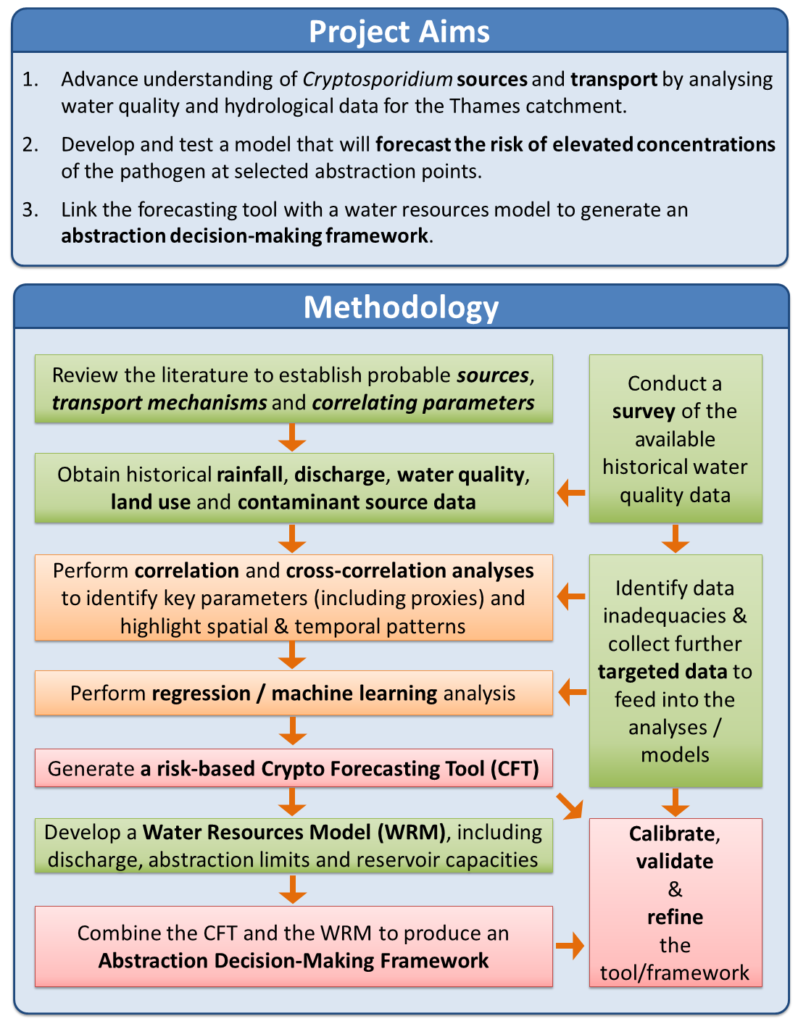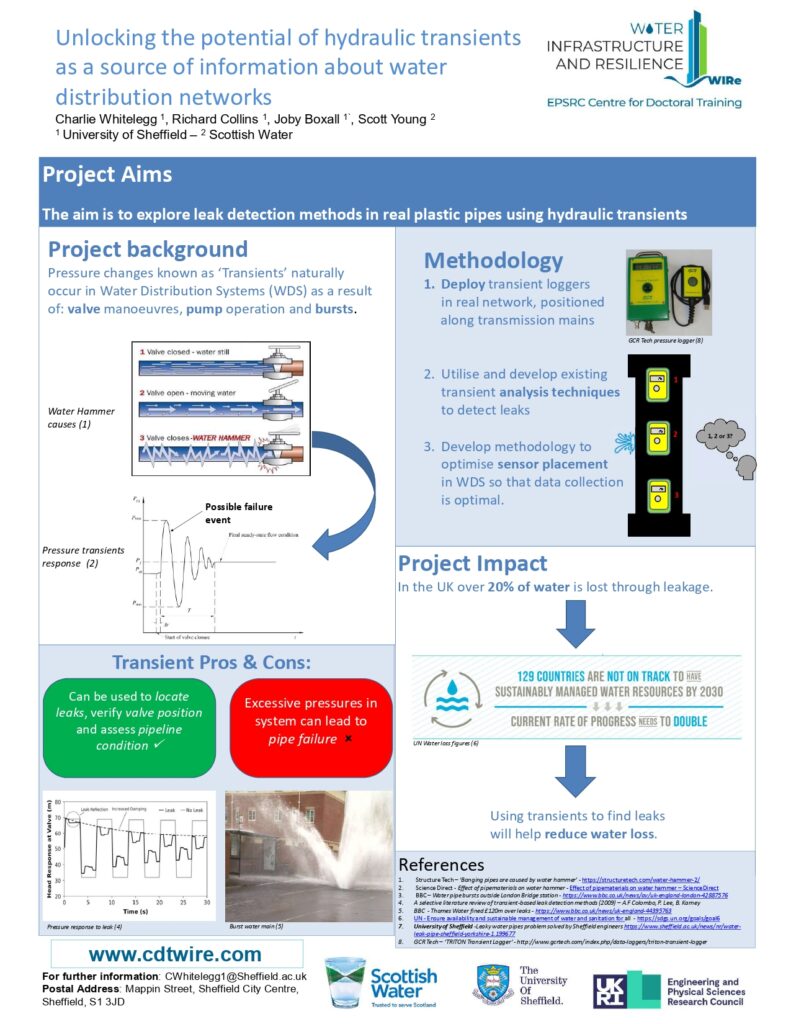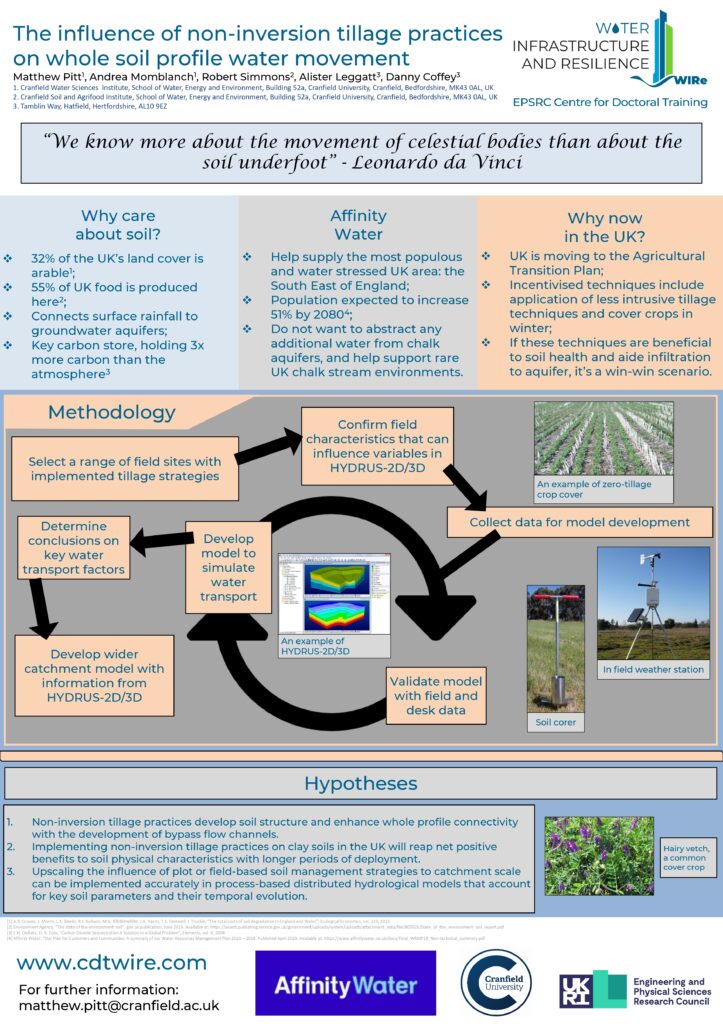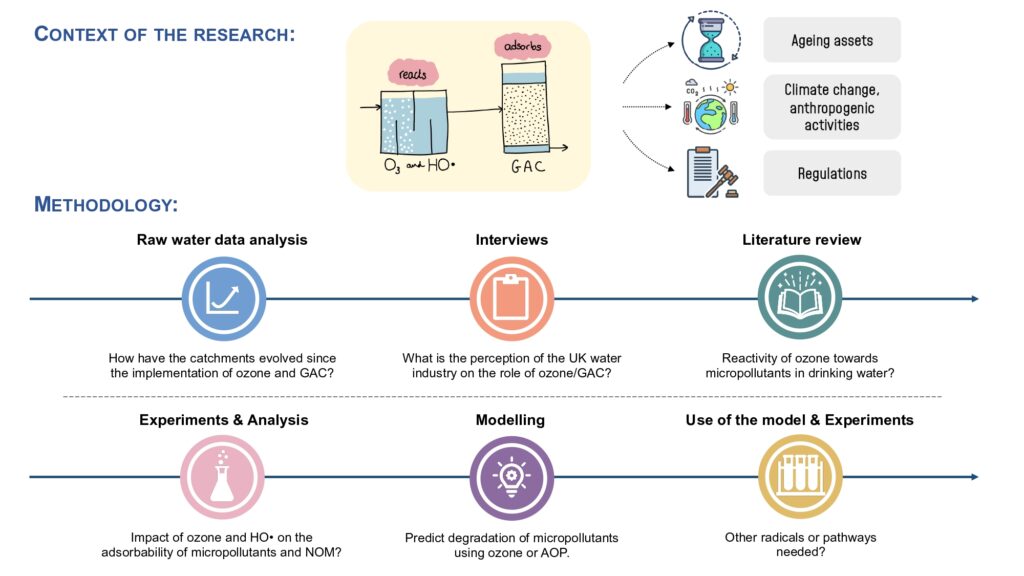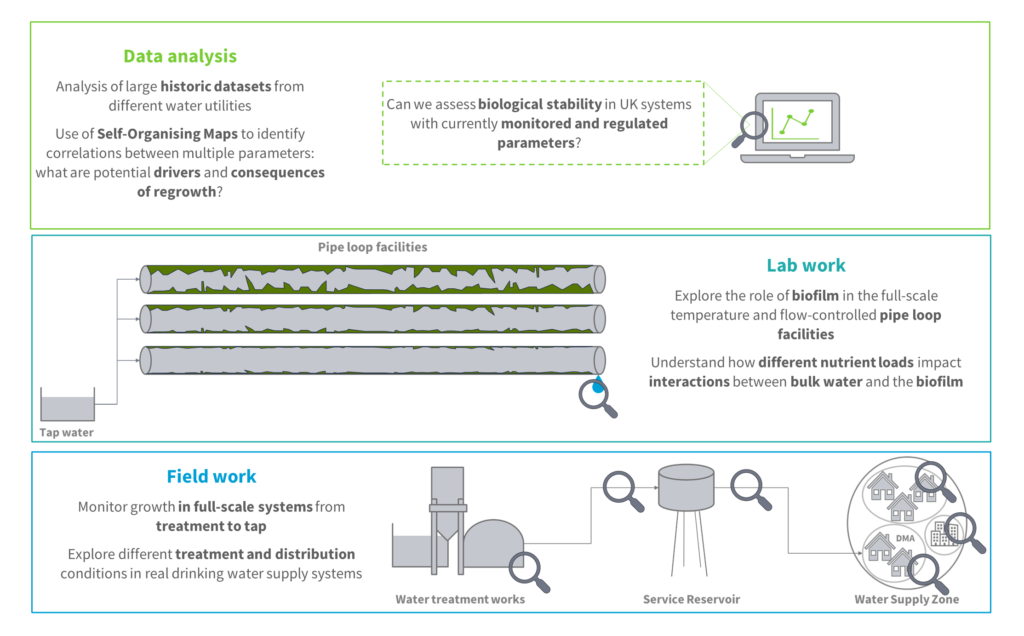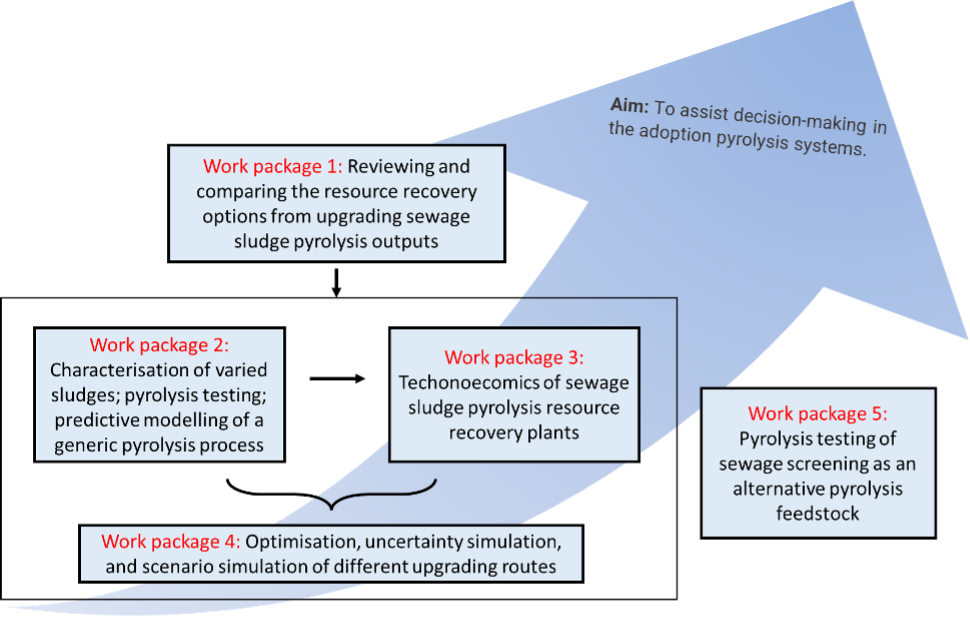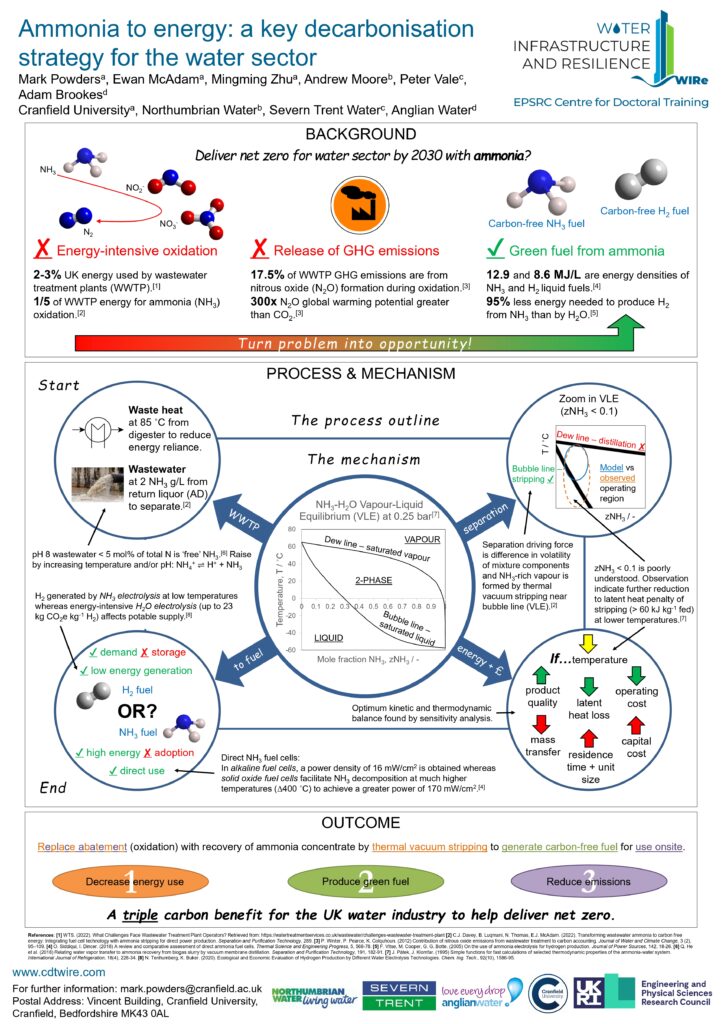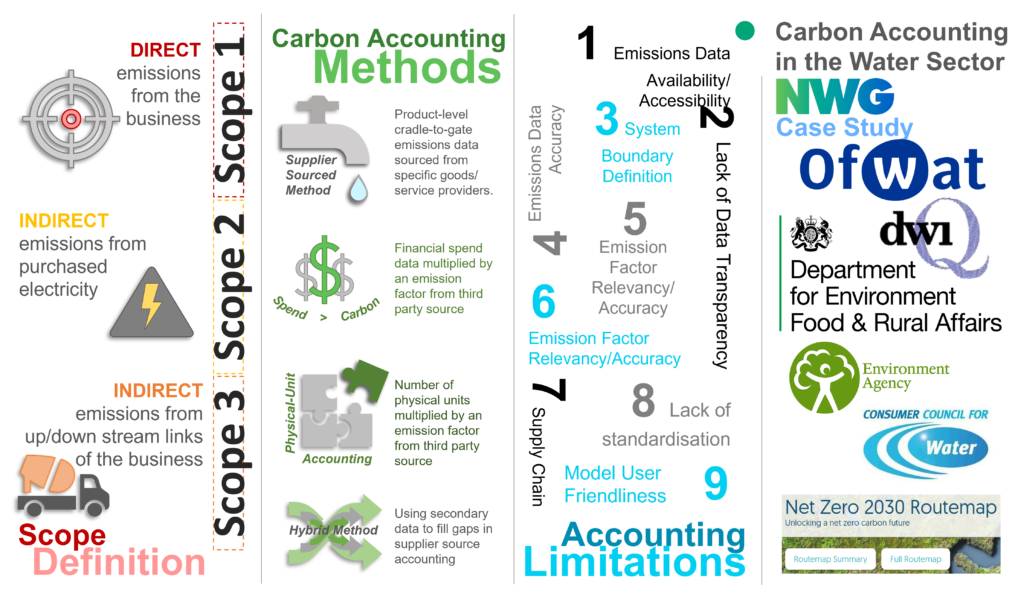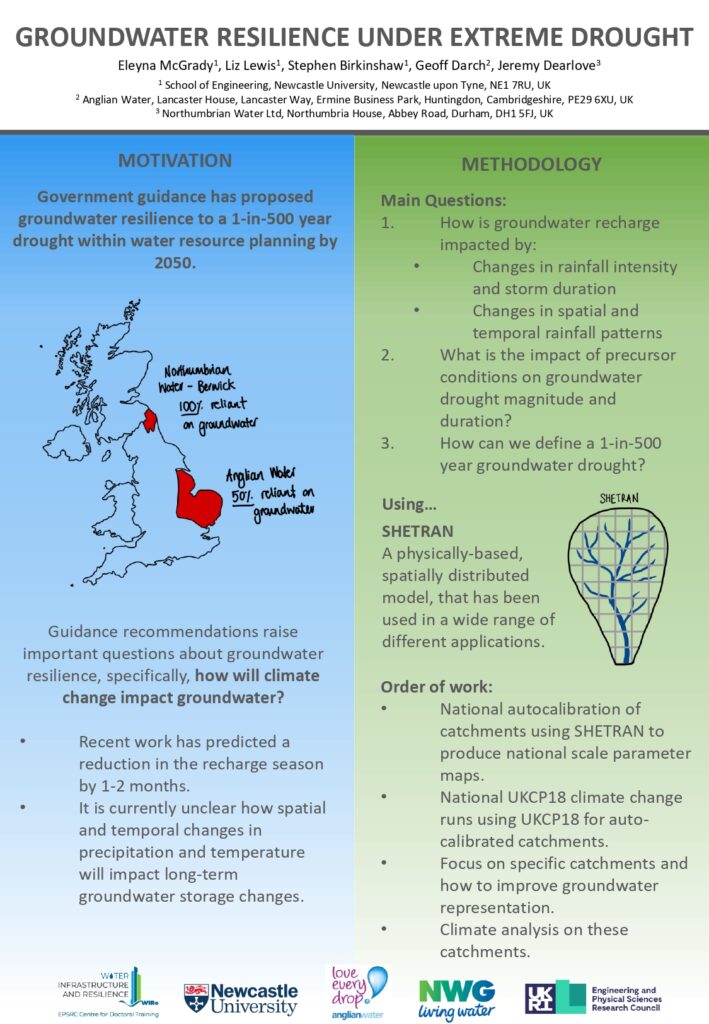Meet Alan Smalley
Email: Alan.Smalley@cdtwire.com
Academic and Industrial affiliations: The University of Sheffield, Thames Water and Severn Trent Water
Title of research project: Real Time Forecasting of Catchment Water Quality to Improve Supply Resilience

Cryptosporidium is a waterborne pathogen of major concern to drinking water providers because of its resistance to chlorination and its infectivity at very low concentrations. Ingestion of the pathogen can lead to severe and prolonged gastroenteritis, with the illness posing a particular threat to patients who are immunocompromised.
Raw waters (e.g. rivers) containing high levels of Cryptosporidium present a significant threat to drinking water supplies because water treatment processes may be incapable of achieving full removal. Selective abstraction – i.e. to avoid raw water which is high in Cryptosporidium – therefore plays a major part in current risk management practices. Unfortunately, this approach is dependent on direct measurement, which is slow and labour-intensive. Samples typically take two days to process, during which time the contaminated water may have already been abstracted to reservoirs or water treatment works.
The ability to make real-time forecasts of the risk of Cryptosporidium exceeding background or threshold levels in the raw water would be a significant aid to water providers. The aim of the current project is therefore to analyse existing datasets with a view to advancing understanding of Cryptosporidium sources and transport mechanisms. This new insight will then be used to develop a forecasting tool which will quantify the risk of the pathogen achieving elevated levels in the river. Finally, the tool will be coupled with a water resources-based framework, incorporating both the Cryptosporidium risk factor and water supply demands. This framework will allow water providers to make more informed decisions about when to suspend and resume raw water abstraction, reducing the risk posed by the pathogen while increasing the volume of water available for treatment.
